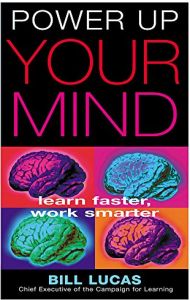Join getAbstract to access the summary!

Join getAbstract to access the summary!
Bill Lucas
Power Up Your Mind
Learn Faster, Smarter
Nicholas Brealey Publishing, 2001
What's inside?
The sub-title says it all: Learn faster, smarter.
Recommendation
In Power Up Your Mind, Bill Lucas attempts to teach readers how to learn. To accomplish this goal, he sets out to provide a blueprint to the workings of the human brain through easy-to-grasp descriptions and illustrations designed to explain how the brain ingests and processes information. What’s lacking is a comprehensive review of the basic theories of learning that experts have deduced from the biological structures and mental functions that Lukas describes. Nevertheless, getAbstract recommends this book for its theoretical insights and practical advice about learning and memory.
Summary
About the Author
Bill Lucas is the founding CEO of the Campaign for Learning. He is a well-known speaker, facilitator, strategist and consultant in the learning field, and he has advised many organizations, including Lloyds TSB, Accenture, Centrica, BT, and the Department of Trade and Industry and Education in Great Britain. He is co-author of more than 20 books, including The Future of Corporate Learning.






















Comment on this summary